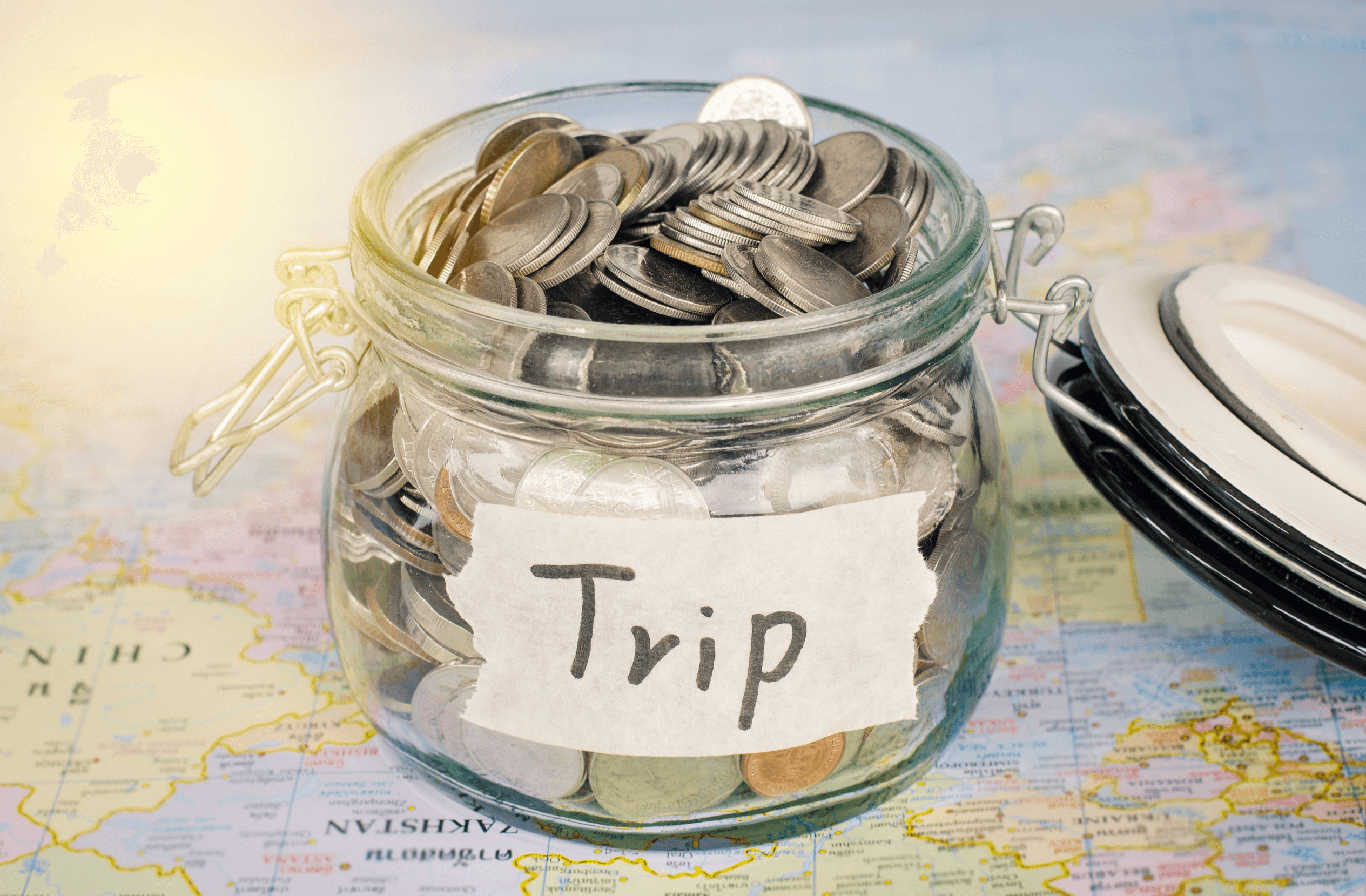
Road trips can be a great way to spend time with your family or friends and save money. If you’re not careful, though, the costs can add up just as much as if you flew and stayed in a fancy hotel.
Before you head out on your next road trip, use these 26 tips to help you save money and make the most of your trip (and budget).
1. Create a road trip budget
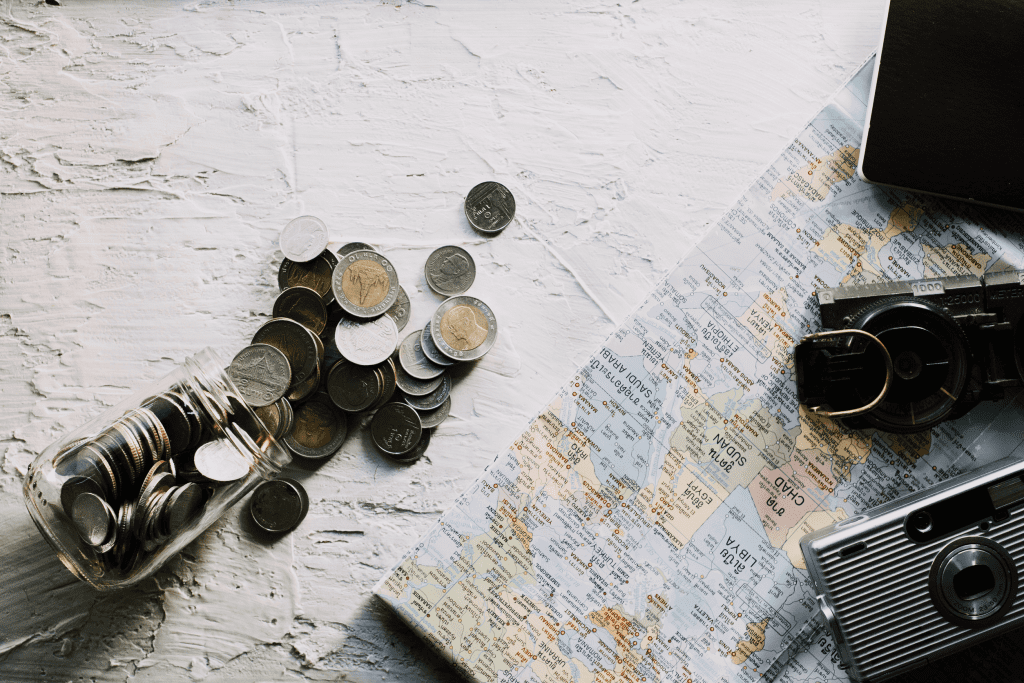
Without a budget, you don’t know if you’re spending too much. The first step in planning your trip should be creating a road trip budget. Include in your budget enough money for accommodations, gas, food, and sightseeing.
Make sure your budget has a buffer since you never know what might go wrong. Having money for emergency car repairs, health issues, or other emergencies helps keep your travels less stressful.
With a budget in hand, you can figure out where you can spend money and where you must find ways to cut corners or even cut things out to make the trip fit your budget.
Not sure how to create a budget? Check these guides for quick tips about setting up a budget:
– 25 Ways to Save Money on a Tight Budget
2. Have your car checked before you leave
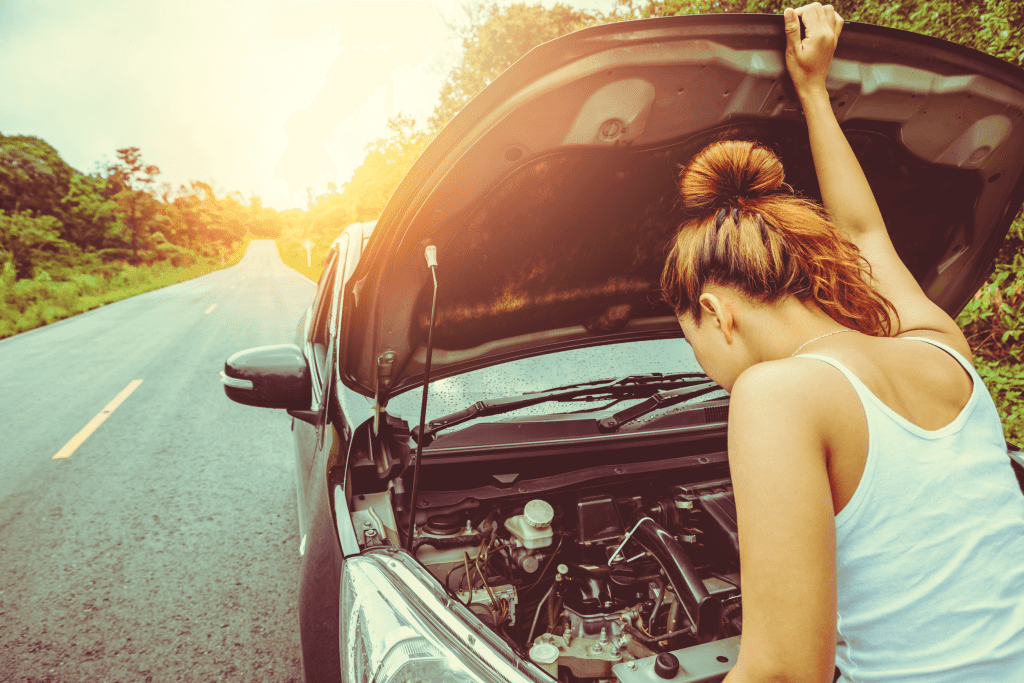
Sometimes you have to spend money to save it, even on road trips. Before you leave for your trip, pay to have your car checked. This saves you money in two ways:
- You may prevent any breakdowns or malfunctions while you’re on your trip. It will likely cost more money to repair your car on the road, especially if you’re in a hurry and/or have to pay for towing.
- You’ll increase your gas mileage, saving yourself money on excessive gas costs just by ensuring your car is running well and the tire pressure is good.
Find a local car repair shop that offers low-cost or even courtesy vehicle checks. If you are loyal to one repair shop, they may offer the service for nothing or if you need something fixed on the car, repair shops often deduct the cost of the evaluation from the repair.
3. Travel during downtimes
Try to avoid traveling during busy times, such as spring break, Christmas, Fourth of July, and other major holidays. Find out when peak travel times are in the area you’ll travel so you can avoid the higher costs including gas prices, hotel fees, and other typical tourist costs.
You may even find it cheaper to travel on the weekdays versus the weekend if you can swing it, especially if you’ll stay in a hotel or need other accommodations.
4. Find free campsites if you’re camping
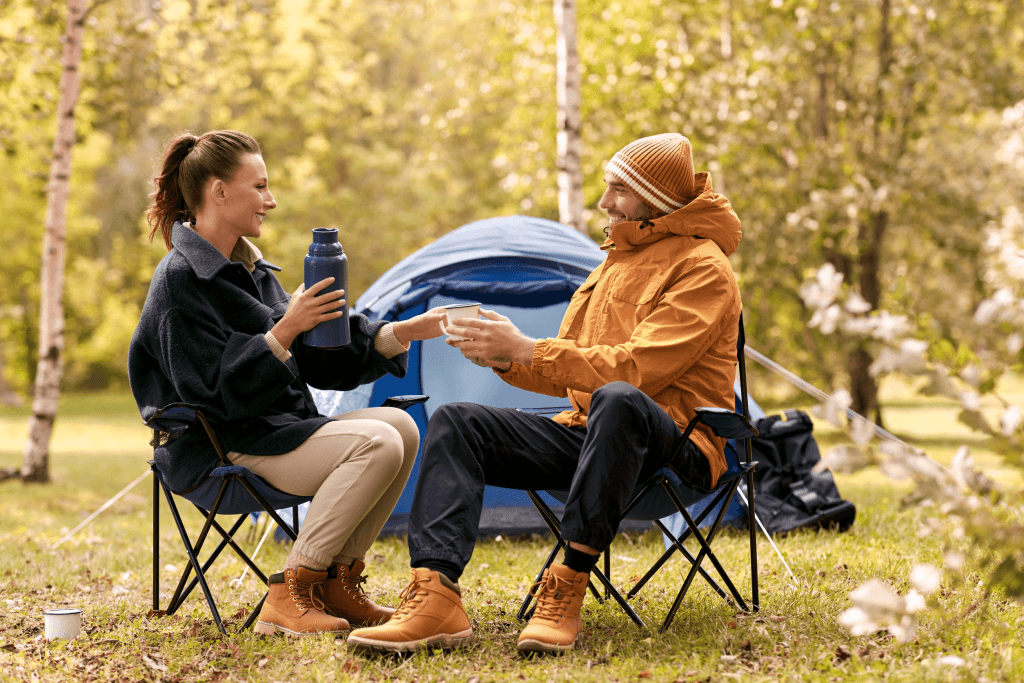
If you’re camping versus staying in a hotel, find a free campsite. Many people assume camping is automatically cheaper, but the costs can add up fast, with some campgrounds charging $25 – $80 a night. Whether you’re driving an RV or pitching a tent, the costs can add up fast.
There’s more access to free campgrounds than most people realize, though. Start with National Forest campgrounds versus private campgrounds for cheaper or even free options. You can also check with the Bureau of Land Management to see if there are any free campsites near the area you’re traveling.
If your car is suitable for ‘camping’ aka sleeping, you may even park in a Walmart parking lot. Check with the store first, but many locations allow and even encourage people to camp in their parking lot.
5. Shop around for the best deals for hotels (and book early)

Don’t leave your hotel accommodations for the last minute. Not only will prices go up because they know you need a place to stay, but you might miss out on some of the best deals.
If you want to shop hotel prices on one website, try Hotels.com or Expedia. You’ll have access to some of the hottest deals in the area you’re traveling to. You can also try calling the hotels individually and asking for their best price. Sometimes the rates you find online aren’t the lowest they can offer – you won’t know until you ask.
6. Stay in hotels with free breakfast
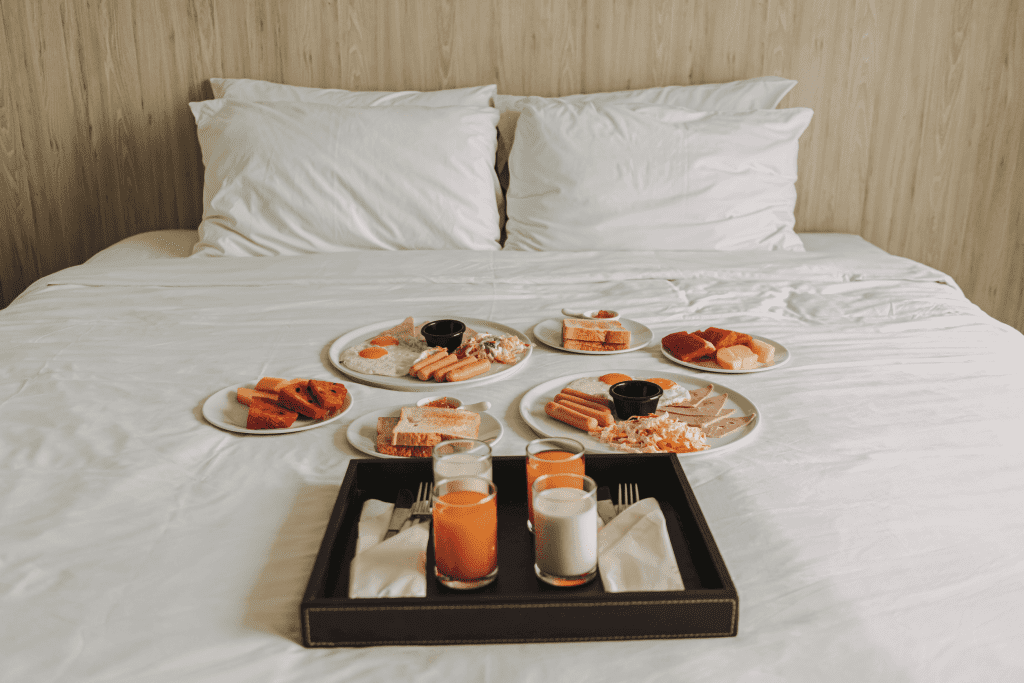
If you’re staying in a hotel, find one that offers free breakfast. Some hotels offer free continental breakfast and others offer a full-service breakfast. Either way, you’ll be able to fill your belly before you head out for the day and can save money not only on breakfast food but also snacks later in the day.
If the hotel offers continental breakfast, consider taking a couple of pieces of fruit or a muffin for the road, saving it for later when hunger strikes.
7. Stay at a hotel with a full kitchen
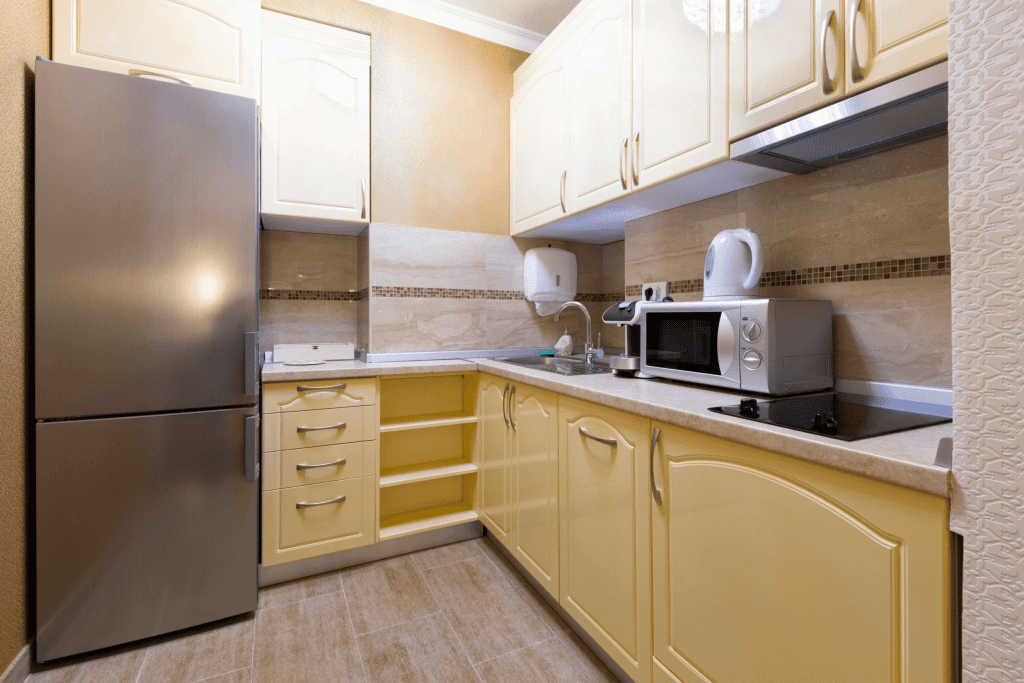
Many hotels have full kitchens or even kitchenettes that make it easy to prepare your meals. Whether you cook full-blown meals or just buy quick meals you heat up in the microwave, you’ll save money by avoiding restaurants.
If the room at least has a mini-fridge and microwave, you can go to the local grocery store to buy milk, fruit, cereal, granola bars, oatmeal, and other easy-to-make breakfast foods to avoid going out to breakfast.
8. Stay with friends or family

If you have friends and family around the country, consider traveling their way or at least stopping on the way to your destination. You can skip a night in the hotel or even at a campground and stay for free.
9. Plan your route and stops
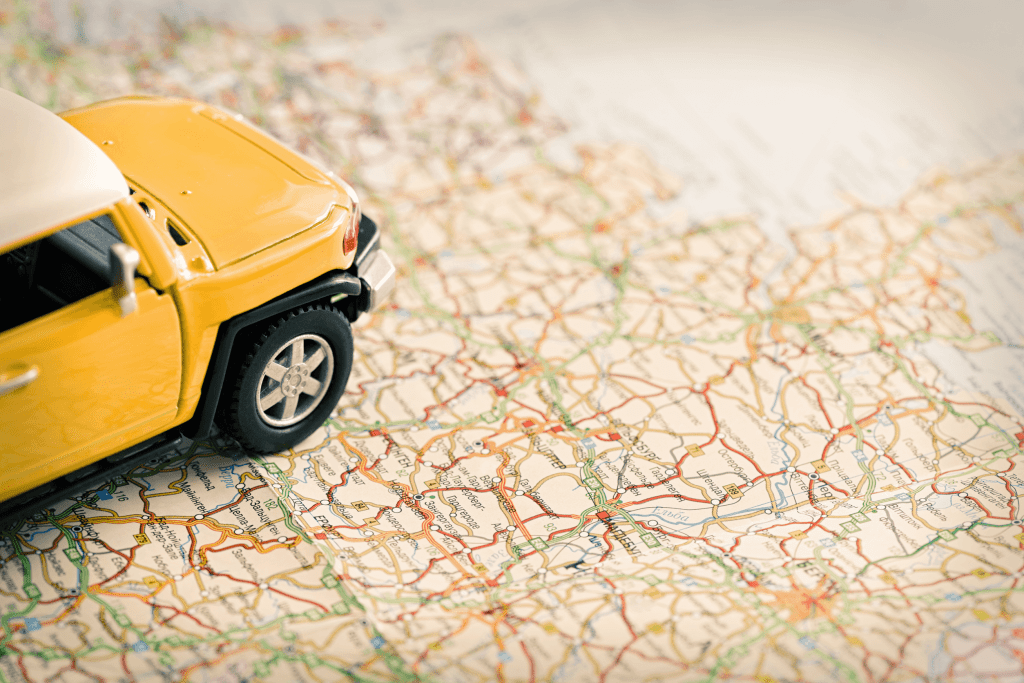
Planning your route is essential for a few reasons.
- You won’t get lost and have to waste gas backtracking
- You may find the faster way to get to your destination saving money on gas and mileage
- You can plan where to stop to buy snacks, go to the bathroom, or stretch your legs
Check your GPS or use Google Maps to get the best route. Keep in mind how often you must stop for gas or other necessary stops.
10. Pack your own snacks

Packing your snacks decreases the need to stop often and saves you money. To save even more money try these tricks:
- Stock up on snacks early so you can take advantage of sales or coupons
- Make homemade snacks rather than store bought snacks
- Pack a cooler so you can have healthy snacks including fruit, lunch meat, yogurt, and even left overs
11. Make your own meals
If your hotel won’t have a full kitchen, consider making meals at home. Pack a cooler with your prepared meals and heat them in the microwave.
If you want to get creative, pack a crockpot or instant pot and pack the ingredients to make your family’s favorite meals at the hotel.
12. Ask locals where you should go to eat or sight see for cheap

No one knows where to save money more than the locals. Ask around to see where you should shop, eat, and sightsee. You’ll have a more authentic visit wherever you travel and you’ll save money.
If you’re traveling to a different state, stop at the state’s Welcome Center. Not only can you stretch your legs and go to the bathroom, but you may find coupon booklets or special deals if you talk to the representatives working the desk.
13. Find local Happy Hours

You can’t go wrong with Happy Hour! You can usually get some great specials and fill up before the dinner prices hit. If you’re staying at a hotel, check if they offer a Happy Hour. Many hotels offer complimentary appetizers or drinks between 3 PM and 5 PM.
14. Pack a reusable water bottle
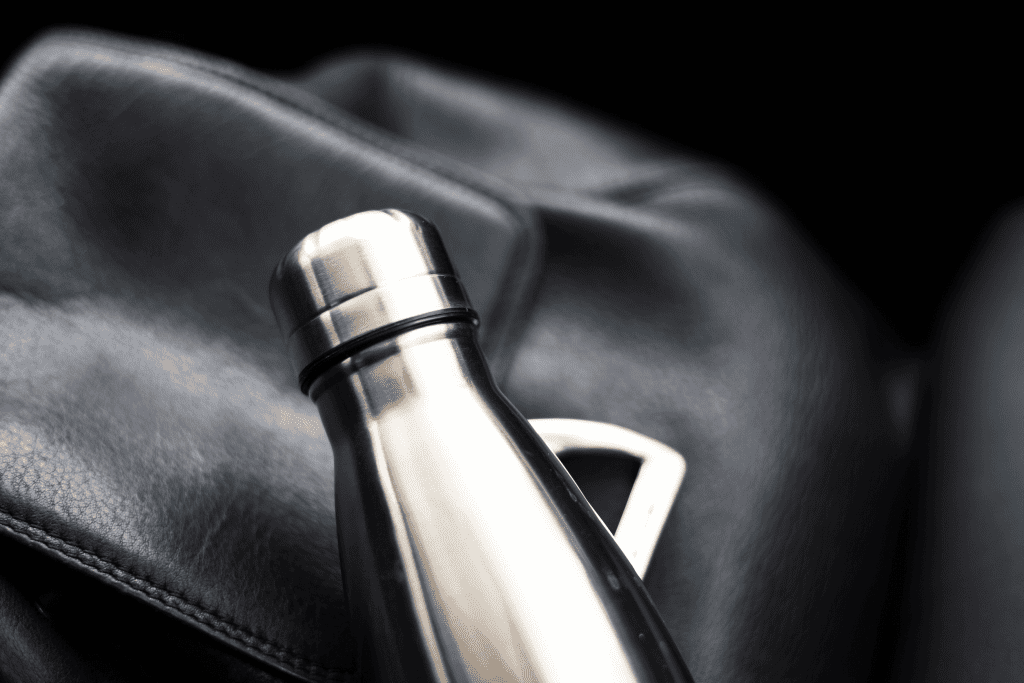
Don’t waste money on disposable water bottles. Instead, pack a reusable water bottle and refill it at rest stops, restaurants, and even gas stations. Not only will you save money, but you’ll also save the environment.
15. Use GPS to avoid tolls
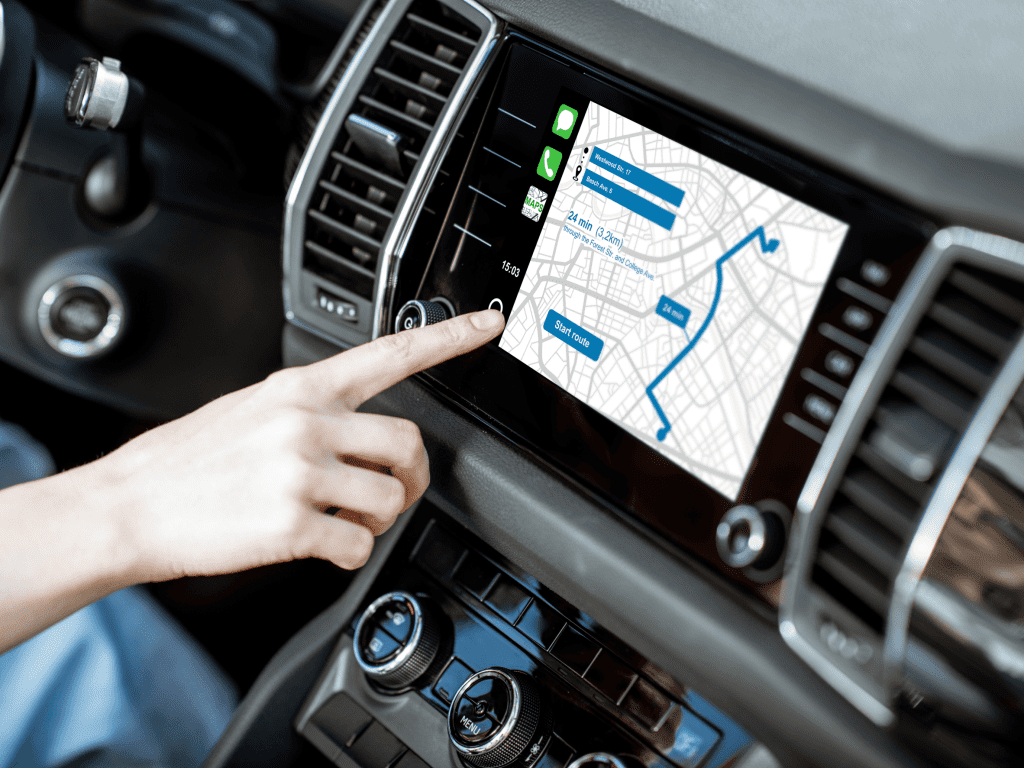
If your travels take you on highways, you’ll probably get hit with tolls, which can get expensive in some states. Instead, plan your road trip so it avoids tolls. Just set your GPS to the selection that says ‘avoid tolls.’ You may not be able to avoid all of them, but even avoiding a few can save money.
If you’re traveling in a state for long distances, consider investing in their prepaid toll system. For example, Illinois has I-Pass and Florida has SunPass. Each state has a toll payment system that if you invest in, you’ll pay lower toll fees at each toll.
16. Dine out for breakfast or lunch instead of dinner

If you have to eat out, make it breakfast or lunch. Prices are usually much cheaper for breakfast or lunch. Time your meal so you will be full for a good portion of the day. Even consider having ‘brunch’ or a late lunch so you can skip dinner altogether and just have snacks back in your room if you get hungry.
17. Use a gas app to find the best gas prices
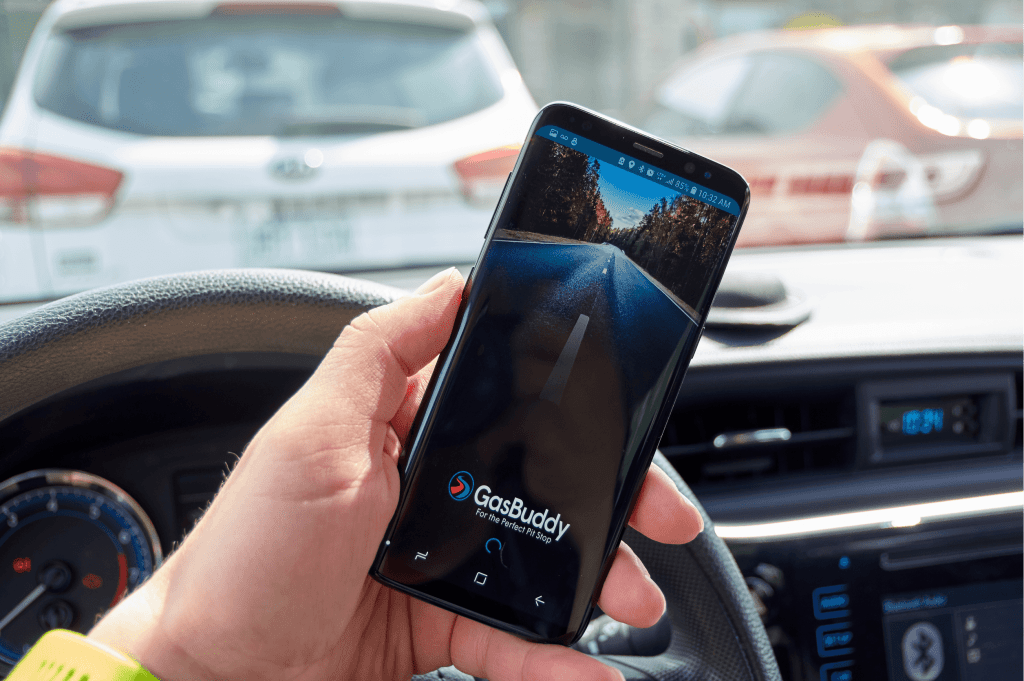
Gas is a necessity to go on a road trip, but that doesn’t mean you should overpay. If you have a smartphone, it’s easy to find the cheapest gas prices in the area, but don’t wait until you’re almost empty.
Plan your gas stops ahead of time so you can fill up where gas is the cheapest. An easy way to find cheap gas prices where you are is with Google Maps. Just type ‘gas’ in the search bar and it will pull up the nearest gas stations and their prices.
You can also download the app Gas Buddy to find the cheapest gas prices on your trip.
18. Make your own coffee

You need your morning coffee, but that doesn’t mean you should break your budget for it. While an occasional Starbucks drink is nice or if you’re out early and couldn’t make your coffee, a simple cup of coffee won’t hurt. Buy it too often, though, and you’ll bust your budget.
Instead, pack instant coffee, your own Keurig machine, or if you have a small coffee maker, bring it with you. You’ll still get your caffeine fix but can stick to your budget.
19. Make sure you have adequate insurance
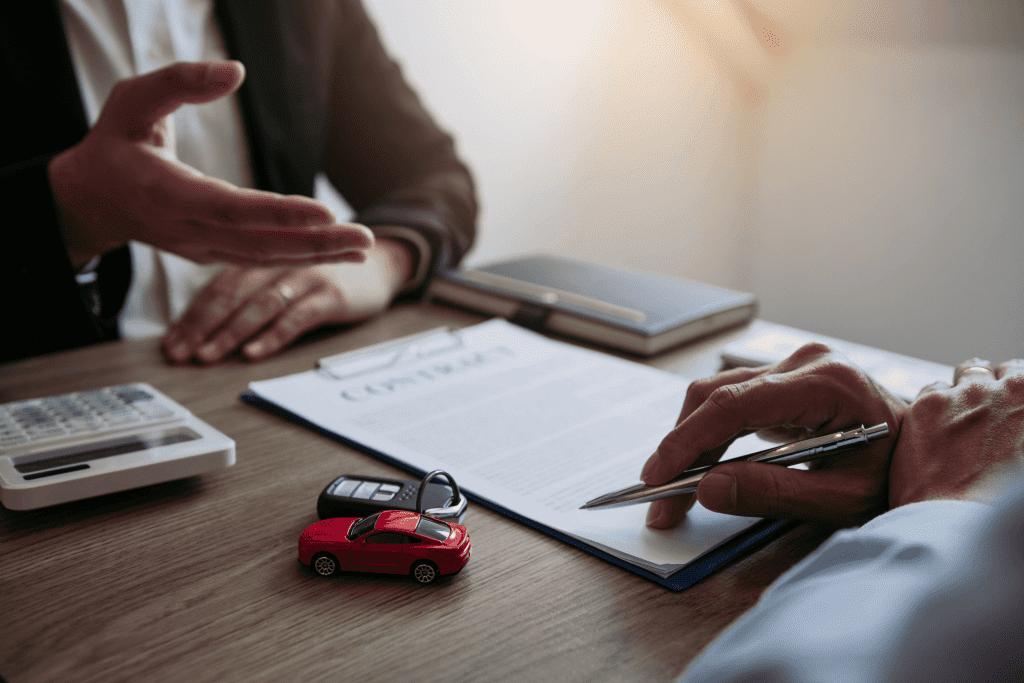
It may not seem like a way to save money, but if you’re in an accident or something happens to your car while you’re traveling, it can be expensive to fix the issue when you’re away from home.
Check with your insurance agent to make sure you have adequate coverage for where you’re traveling and anything that could occur. It’s a good time to review your coverage with your agent and make any changes if something doesn’t feel right.
20. Find free attractions
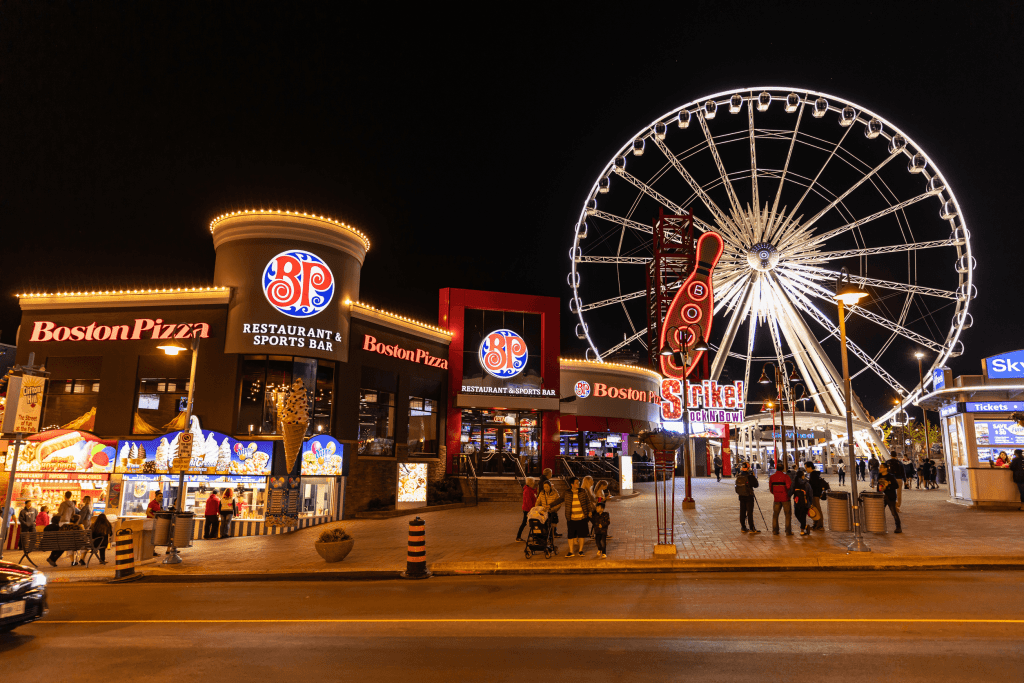
Most areas have plenty of free attractions to enjoy. If you stopped at a Welcome Center, you should have a list of free attractions in the area. If not, Google ‘free attractions in ‘the city you’re visiting’’.
21. Look for parking online
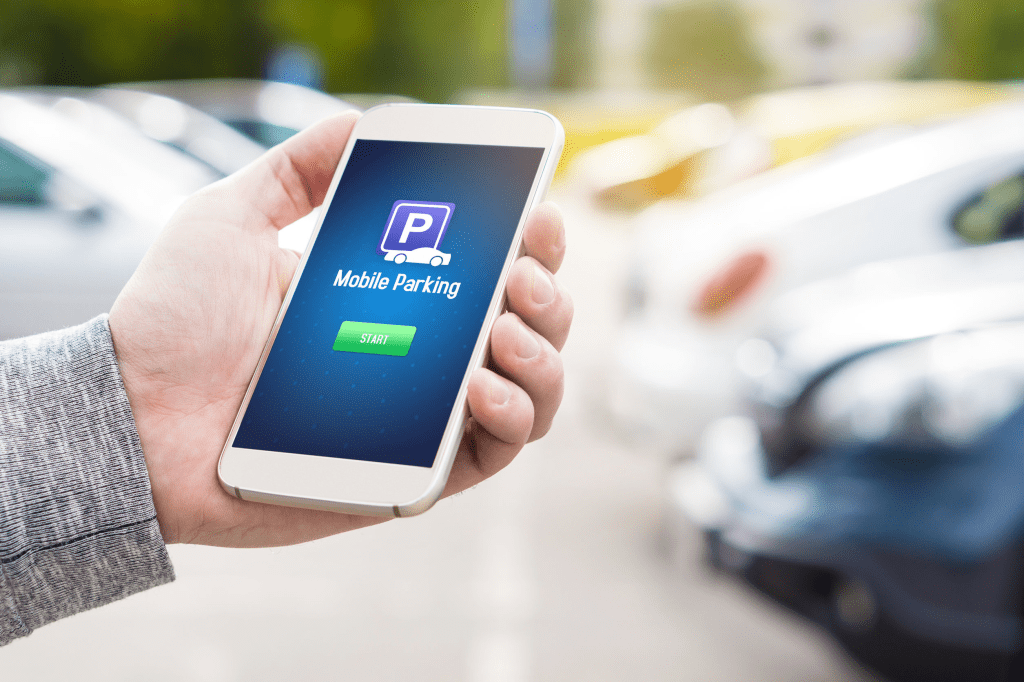
If you have to do any public parking, book your parking online first. Not only will you reserve a spot in popular areas, but you might save money. Try sites like Spot Hero or download the app Parking for Me to find cheap and safe parking.
22. Make a packing list to avoid last minute stops at the store
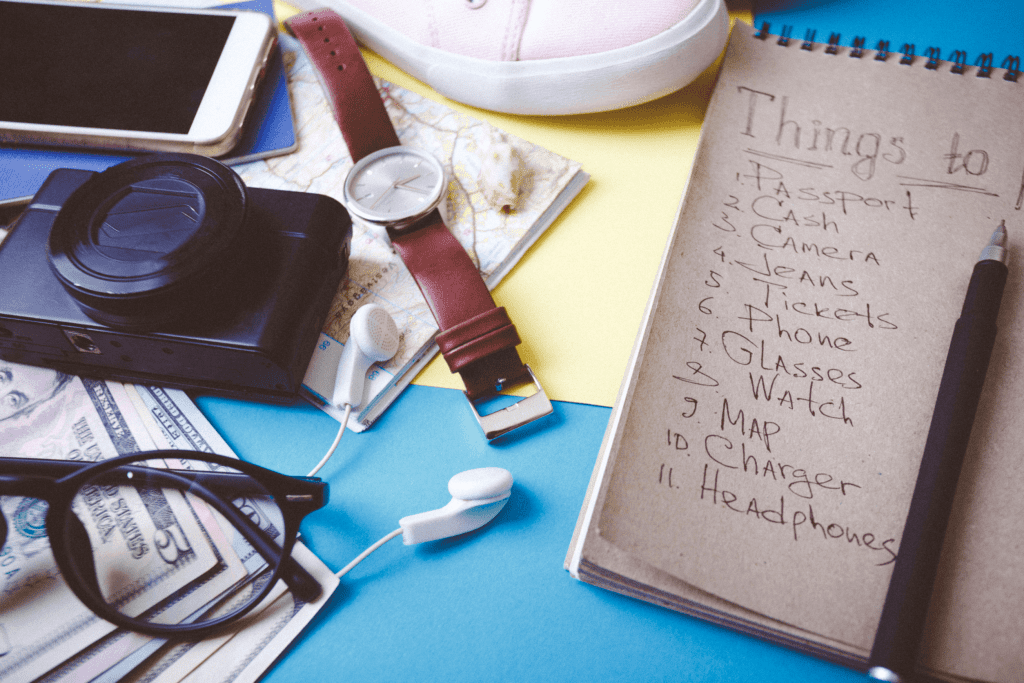
Planning is essential to saving money on your road trip, which includes packing. If you pack at the last minute, you’re more likely to forget important items and have to buy them while you’re traveling.
Instead, make a packing list weeks before you leave and double-check it a few times to make sure everything you need is listed. Pack a couple of days before you leave too so you have time to think of things you may have forgotten.
23. Use public transportation

If you’re traveling to areas with public transportation, take it. You’ll put less wear and tear on your car and decrease your gas usage. Public transportation is usually pretty inexpensive in most areas and kids may even ride for free.
24. Pick your splurges ahead of time

Vacation is a time to splurge (a little). Rather than splurging spontaneously, plan what you’ll splurge on. Make a list of the things you want to do or see and prioritize them. Fit in as many free or low-cost things as you can and save your money for the few ‘big things’ you want to do that are worth spending the money on.
25. Avoid tourist areas
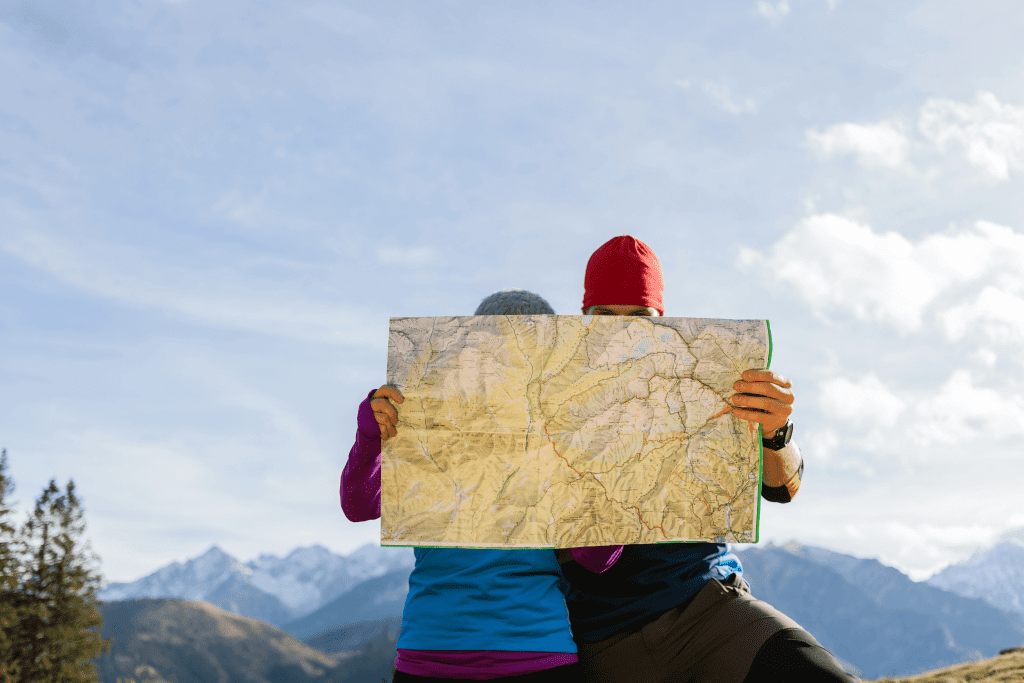
Rather than following the masses and doing what everyone else does, create your fun. Avoid the tourist traps because they are just money traps. You’ll spend much more than necessary on activities you could do yourself in a less touristy area.
FAQs – Saving Money on a Road Trip
Is it cheaper to drive or fly?
It’s typically much cheaper to drive than fly. Even if you have to break up your trip and stay in a hotel for a night or two, it usually costs less than flying. When you fly not only must you pay for airline tickets, but you’ll likely have to pay to check your bags, park your car, and for transportation from the airport, not to mention the high cost of food and drink inside the airport.
How do I plan gas costs for a road trip?
It’s smart to plan your gas costs before you travel. To figure out how much you’ll need, look at the trip’s total mileage and divide it by the number of miles your car gets per gallon to see how many gallons of gas you need. Next, look at the average cost of gas on the path you’re driving and multiply it by the number of gallons you’ll need.
How many miles should I drive per day on a road trip?
The average person shouldn’t drive more than 9 hours a day. If you’re driving alone, you shouldn’t drive for more than 4.5 hours without taking at least an hour’s break. Always judge for yourself how long you can make it though. Some people don’t have the tolerance to drive for as long as 9 hours and that’s okay!
Are long trips bad for your car?
Long road trips do add to your car’s wear and tear. You may not notice it right away, but your car may break down sooner or need repairs sooner than it would if you didn’t take it on a trip. Always have your car checked before going on the road trip to make sure it’s a safe choice.
Final Thoughts – How to Save Money on a Road Trip
Planning is the key to saving money on a road trip. With the help of the internet and several apps, you can plan your trip so that you save money, have fun, and are able to do what you want to do without breaking the bank.
Before you travel, shop or dine out, always check for coupons to make sure you’re saving the most money.
